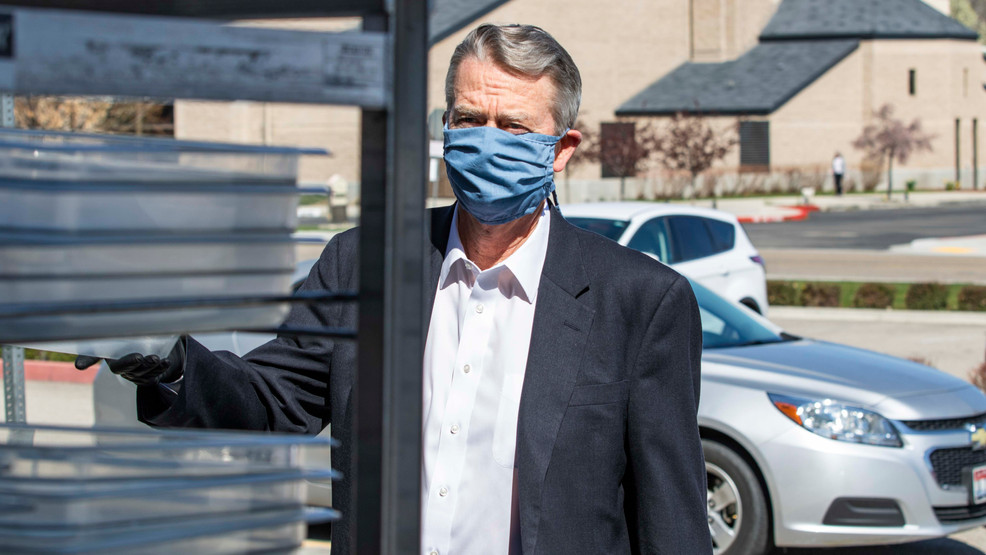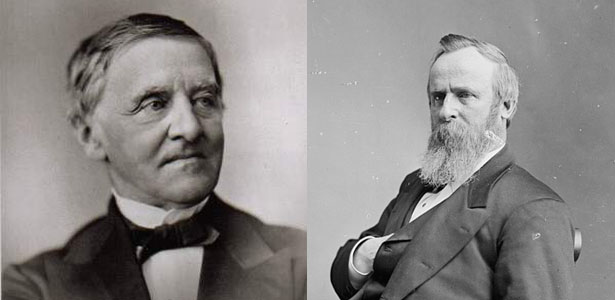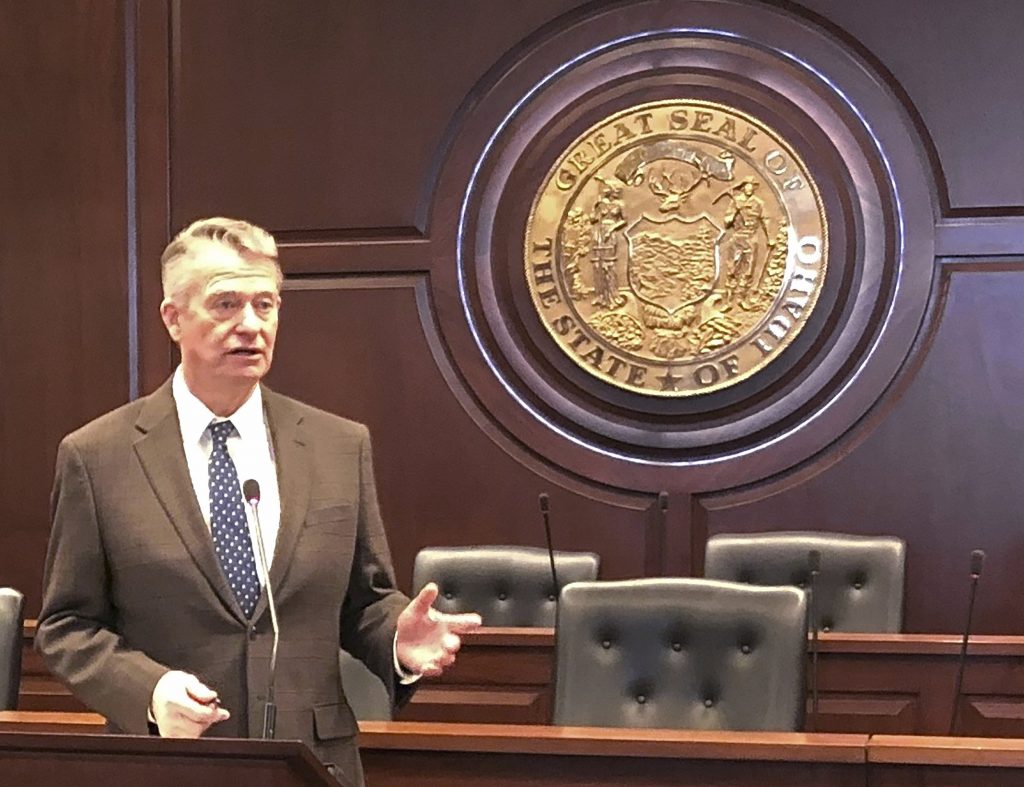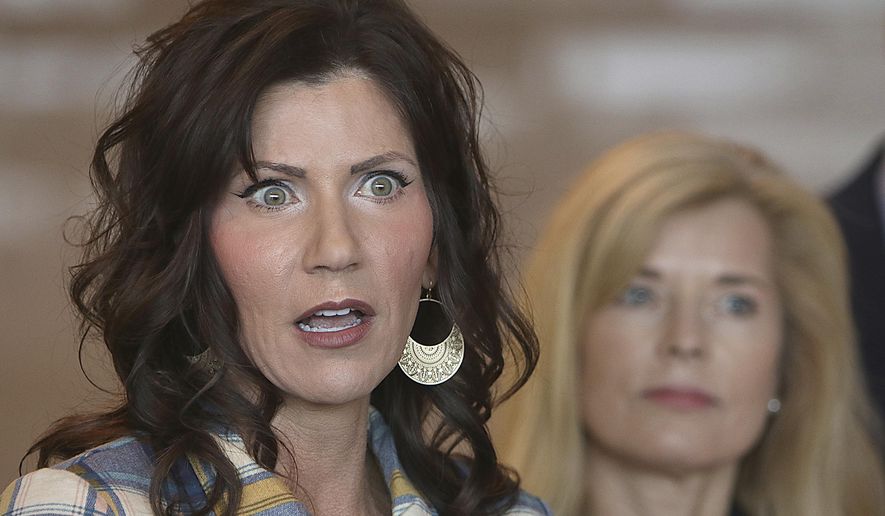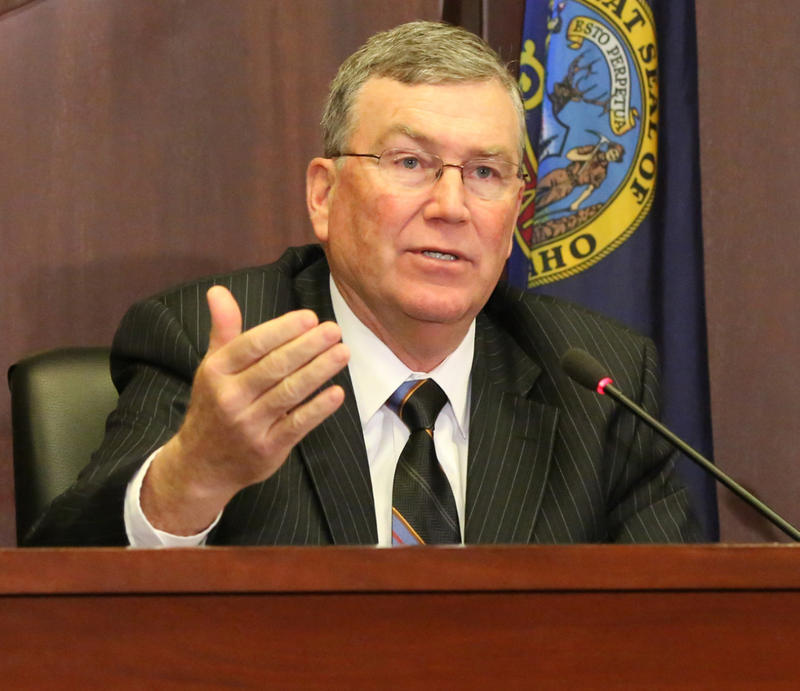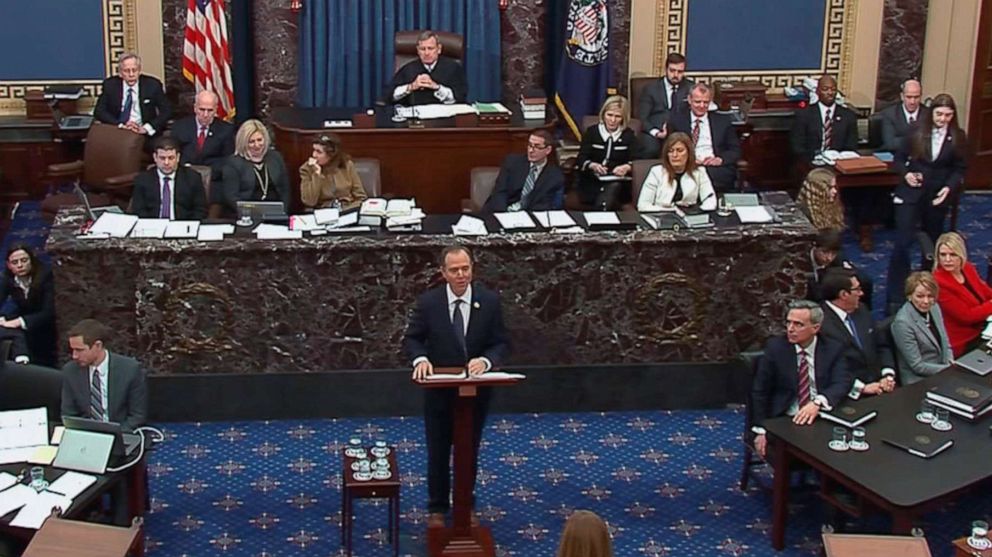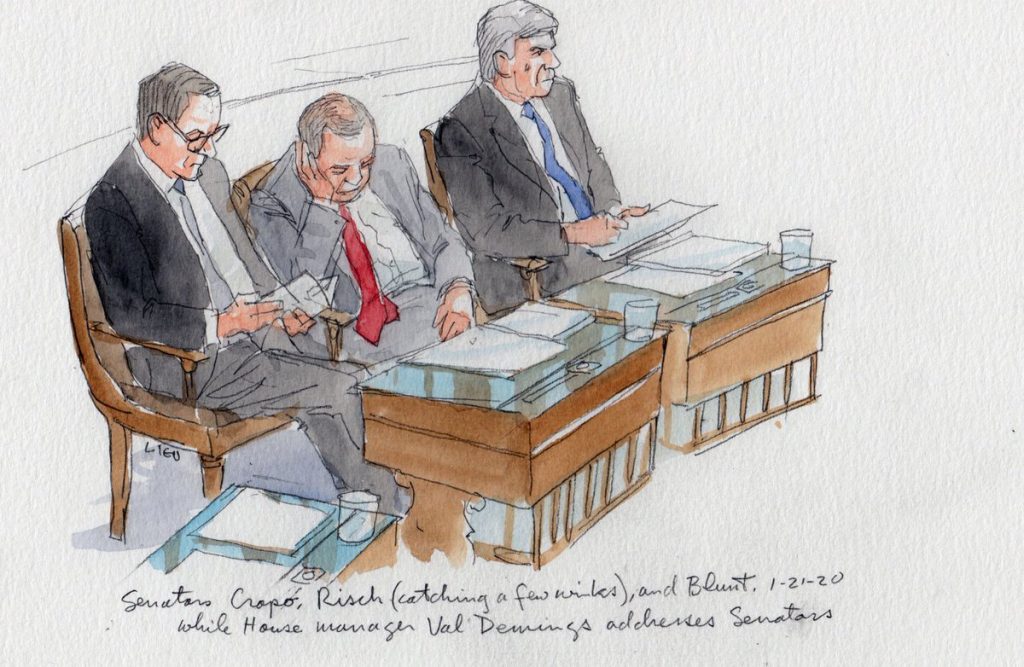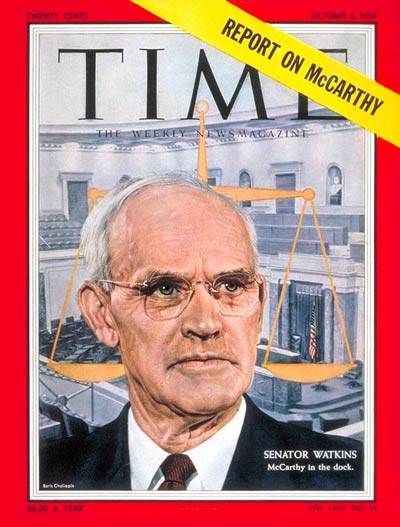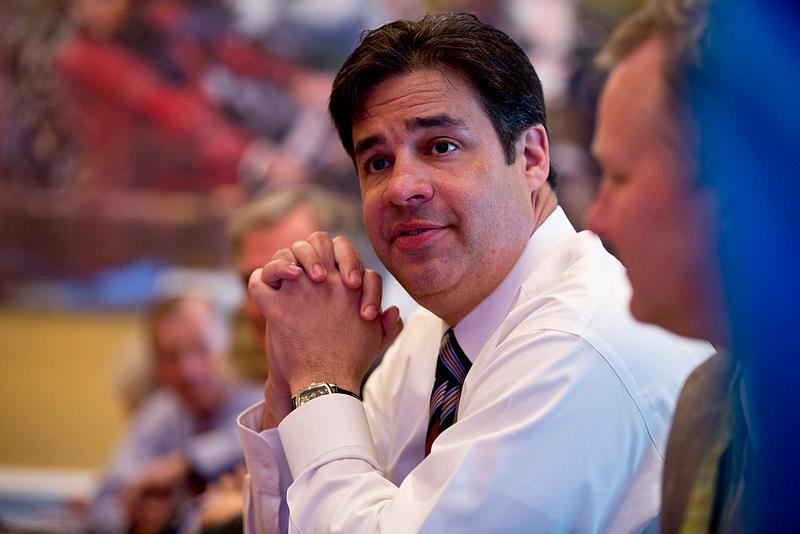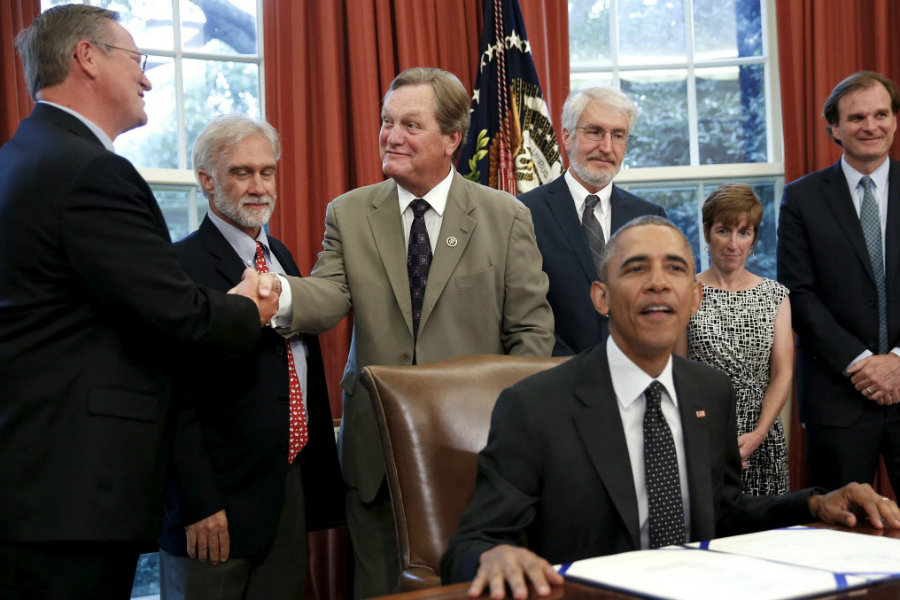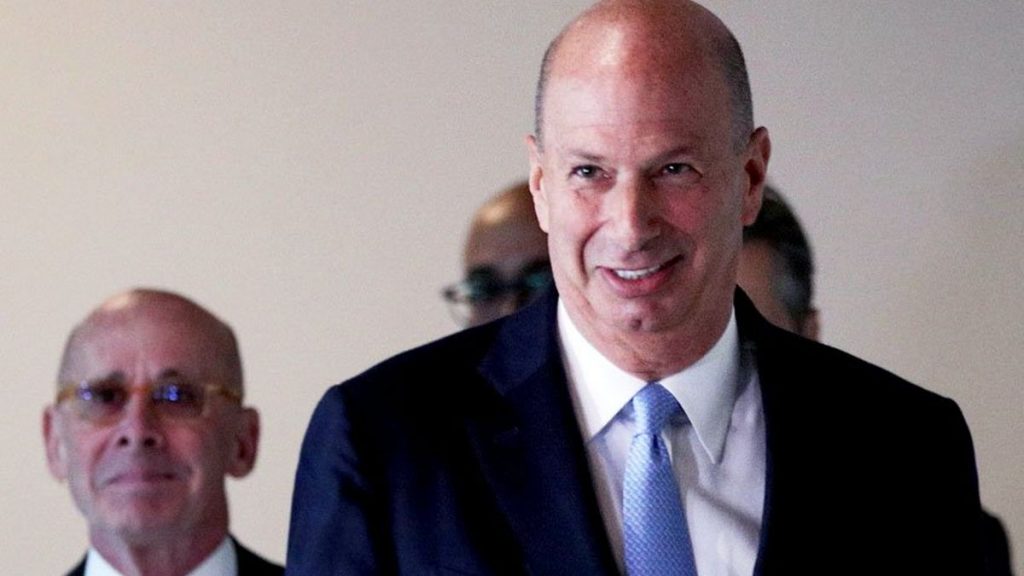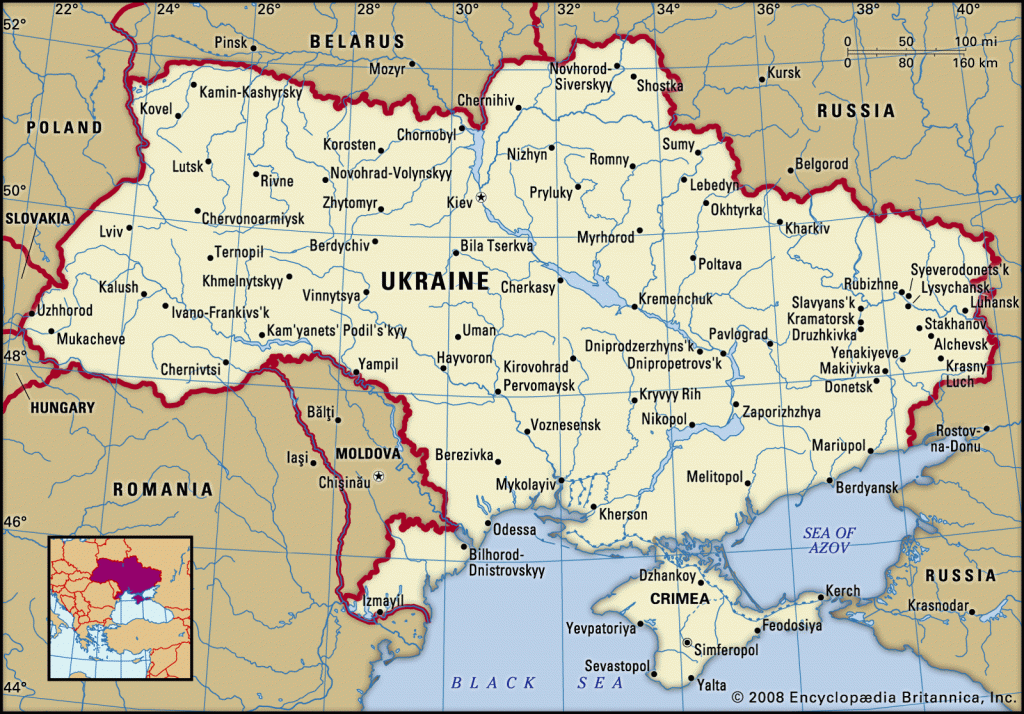When it comes to outstanding members of Congress Idaho’s sprawling 1st District isn’t known for them. Over the last half century, the district has frequently been represented by a collection of non-entities, clowns and down right embarrassments. The sanity of an occasional member like Jim McClure or Larry LaRocco hardly makes up for the cranks, mountebanks and conspiracists like Helen Chenoweth, Bill Sali and Raul Labrador.
Chenoweth, who long ago flirted with the kind of malevolent criminal militia-types who attacked Congress last week, was an early adherent to the nutty fiction that “the deep state” employed black helicopters “filled with United Nations-sponsored storm troopers eager to swoop into the broken-down ranches of the rural West and impose international law.”
Sali argued that there was a direct link between abortion and breast cancer and Labrador, as ambitious as slimy Texas Senator Ted Cruz but without the charm, held firmly when he lied that “nobody dies because they don’t have access to health care.”
Yet, even considering this gallery of forgettables, has any Idaho member of Congress ever so completely debased themselves in the service of political ambition and crackpot conspiracy theories as the 1st District’s current piece of furniture, Representative Russ Fulcher?
For a virtually unknown backbencher, January 6, 2021 began with heady stuff for Fulcher, who one suspects most of his 434 colleagues couldn’t pick out of a lineup. Up early and primed for sedition, Fulcher was booked, in the language of the Beltway, for “a hit” on Fox News where he was introduced as a participant in “the final challenge to the 2020 election.”
The Fox interviewer announced that aw shucks Russ would explain his objections “to the Electoral College result.” And so, he did.
How will this go down, Fulcher was asked? Well, “there will be at least four states – Arizona, Pennsylvania, Georgia,” and then no kidding he couldn’t remember the fourth state, “that will be challenged.”
“This is going to be a monumental day in American history,” Fulcher said, “make no mistake about it, especially if the trend continues in the state of Georgia you will see the stakes go monumentally higher.” It’s hard to tell what Fulcher meant by that, which is not surprising considering the source. Was it a reference to the two U.S. Senate seats that by the time of his interview were slipping away from Republicans to give Democrats control of the Senate? Or was he suggesting – or lying – as the president he has slavishly served has repeatedly lied, that Georgia’s presidential election results were somehow tainted.
Those results weren’t tainted in any way, just for the record, a fact confirmed again for the umpteenth time this week by a newly installed U.S. attorney in Georgia. The previous guy in that job left abruptly when Donald Trump determined that he wasn’t working hard enough to steal the election. But back to Fulcher’s monumental day and his Fox interview.
Why did you decide to challenge the election result, the gentleman from Idaho was asked?
“Because,” Fulcher responded, “the fact that there were multiple states, the ones that get cued up today and challenged today simply broke their own laws.” He went on to spin a word salad of alleged election law violations devoid of a single specific example of law breaking before ending with the assurance that somehow the mere allegation of impropriety “in and of itself pulls into question the results of those elections.”
Then the coup d’ grace: “There are tens of millions of people who want to see some action on this, and they are absolutely convinced there is election fraud.” Or put another way, despite Trumpist legal failure in dozens of vacuous lawsuits, despite the gross and now deadly lying about a stolen election, despite the statements of a bipartisan collection of state election officials, the attorney general of the United States and the Supreme Court that there is absolutely nothing to “see some action on,” Fulcher embraced warmly the biggest lie ever told in presidential politics.
Shortly after his Fox hit, Fulcher posted, with obvious satisfaction, a photo of himself on Twitter with the line: “Formal objections filed.” He was effectively documenting his own sedition. By midafternoon, after Fulcher had joined with 146 other House Republicans in an attempt to throw out presidential votes in Arizona, he was lamenting “the violence seen today.”
But, of course, it was not merely violence, but deadly insurrection aimed squarely at the Congress where Fulcher serves, propagated in an effort to prevent the constitutionally required certification of state electoral votes. Not then and not since has Fulcher offered even a hint that the violence that claimed a half dozen lives, trashed the Capitol and saw thugs insisting that they would “hang Mike Pence” was incited by lies, including his own. He has, of course, offered no condemnation of Trump’s incendiary speech minutes before the assault on Congress.
In subsequent interviews, including with Bill Spence of the Lewiston Tribune, Fulcher insisted he was just trying to get to the facts about the election and not overturn the result. But that’s another lie. You can’t say, as Fulcher has, that states need to run their own elections and report their own Electoral College results and at the same time lie about Congress having a role in policing what states do.
So, what was Fulcher’s end game in this fiasco? Had the objections he lodged been sustained – he also rejected Pennsylvania’s vote and did so after the Capitol mayhem had claimed lives – a Joe Biden victory would still not have been voided. If Fulcher supported an extra-constitutional “commission” to investigate the election as Cruz sought, he never said so. So, what he was really doing was a political performance, just a stunt.
A stunt that magnified a gross lie. A stunt demanding something be done to get the “facts” that have never once been disputed by state election officials or any court. A stunt to gin up the rightwing militia types, the Q-Anon conspiracists, the Fox News addicted groupies, the fact free Trump base. A stunt that spawned insurrection, got people killed and shook the very foundation of democracy.
Fulcher’s “monumental day in American history” should mark the end of his short, hideously incoherent and disgraced career in Congress.
It takes real effort to be the most disreputable person to have ever served the 1st District of Idaho, but Fulcher clearly owns that distinction.
—–0—–
Additional Reading:
Some other stories I found of interest this week…
The Duchy That Roared
Luxembourg doesn’t get a lot of press, but the tiny country sandwiched among Germany, France and Belgium did make headlines this week. The Atlantic’s Anne Applebaum talked to Luxembourg’s foreign minister about his critique of the U.S. president.
“Lucky are the foreign ministers of very small, very consensus-driven countries, for those who play their cards right sometimes get to hold office for many years. One of the luckiest card players out there is Jean Asselborn, the amusing polyglot who has been the foreign minister of Luxembourg since 2004. Although his country is tiny (population 613,000), the longevity of Luxembourg’s top diplomat gives him the confidence to say what he thinks—even if it is, well, undiplomatic. Last week, following the insurrection in Washington, D.C., Asselborn did exactly that: ‘Trump is a criminal,’ he told RTL, his country’s leading broadcaster. ‘A political pyromaniac who should be sent to criminal court. He’s a person who was elected democratically but who isn’t interested in democracy in the slightest.'”
Ted Lasso
The premise is, well, ridiculous. A small-time U.S. football coach from Kansas, the very epitome of a hayseed, is hired to manage a big time Premier League soccer club in the U.K. When a friend suggest I watch it I was reluctant, but boy am I glad I found the series on Apple+

“No one expects Ted’s kindness and persistence to have a ripple effect on just about every person in the orbit of the team. In 10 deeply satisfying, funny and smartly crafted episodes, Ted Lasso avoids the most predictable jock stories, sketches a dozen indelible character portraits, and earnestly delves into the lives of people who begin to believe in each other, even as they start to make halting progress toward making amends for their cluelessness, cruel actions and mistakes.”
Go for the escapist good time and stay for the sweet messages. A good review in Vanity Fair.
Mickey Edwards Leaves the GOP
The crisis of the modern Republican Party is well stated by the former congressman from Oklahoma.
“I have been a Republican for 62 years. I have been a Goldwater conservative, a Reagan conservative, and a W conservative.
“And I have now left the Republican party. A party that has been at the center of my entire adult life. A party that defined me to others and to myself. It has become the opposite of what it was. It has become a cult idolizing a ruler, a trasher of institutions of democracy driven by falsehoods and hatreds.”
See you soon. Thanks for reading.

